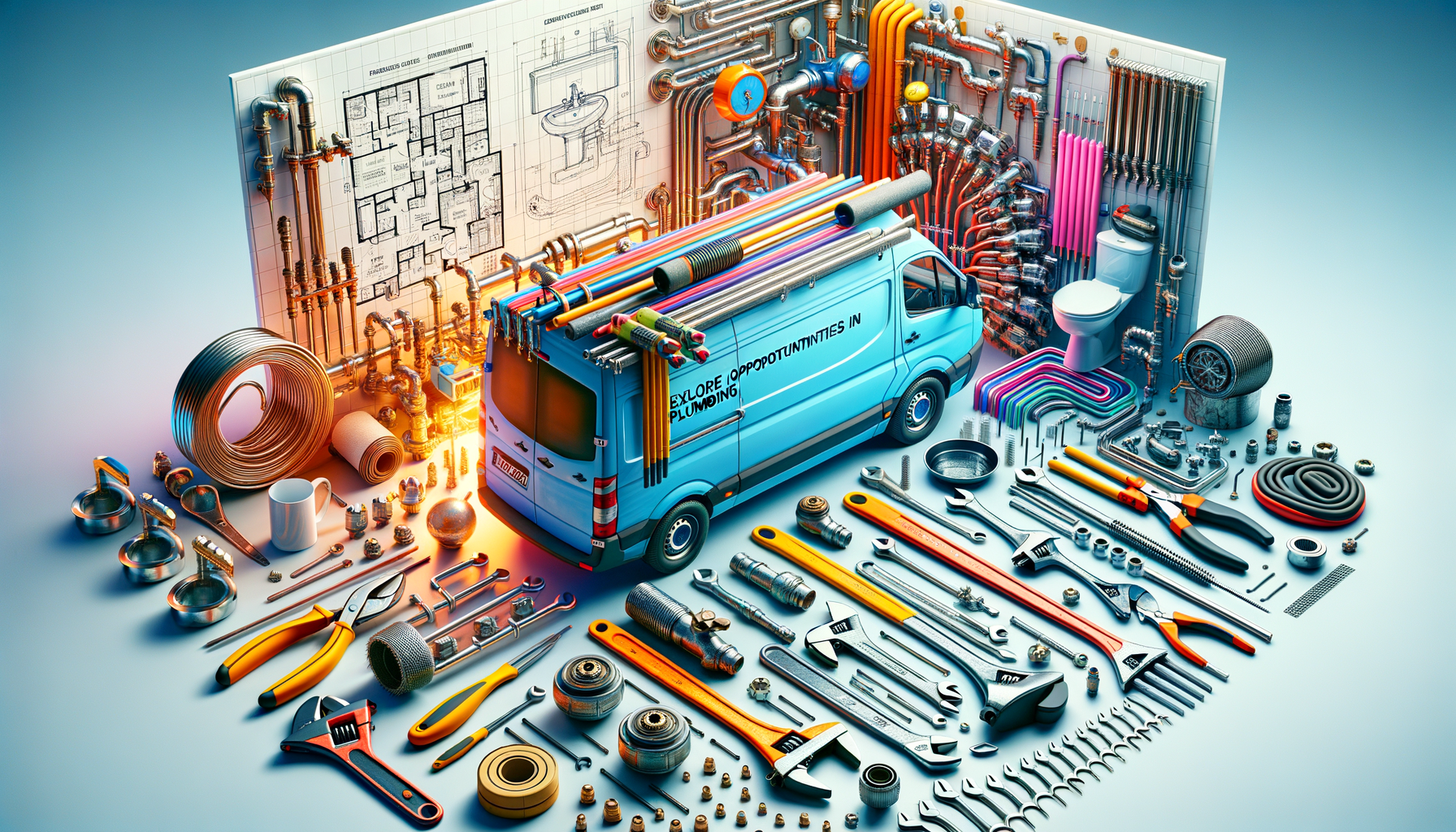The Role of a Plumber
Plumbers play a crucial role in maintaining the infrastructure of homes and businesses by ensuring the proper functioning of water systems. Their responsibilities include installing, repairing, and maintaining pipes, fixtures, and other plumbing equipment. Plumbers are often called upon to address emergencies such as leaks or clogs, making their work vital to prevent water damage and maintain hygiene standards.
In addition to hands-on tasks, plumbers must also be adept at reading blueprints and understanding building codes. This ensures that all installations and repairs comply with legal standards, keeping buildings safe and efficient. The diversity of tasks a plumber handles—from installing new systems to troubleshooting complex issues—makes this career both challenging and rewarding.
Plumbers often work in various settings, including residential homes, commercial buildings, and industrial facilities. This variety offers a dynamic work environment and the opportunity to specialize in areas such as gas fitting, pipefitting, or steam systems. The role requires a combination of technical skills, problem-solving abilities, and physical stamina, making it suitable for those who enjoy hands-on work and continuous learning.
Skills and Qualifications Needed
To succeed as a plumber, one needs a blend of technical skills and personal attributes. Key skills include proficiency in using plumbing tools, a good understanding of water systems, and the ability to read technical drawings. Additionally, plumbers should possess strong problem-solving skills to diagnose issues and determine effective solutions.
Qualifications typically begin with a high school diploma or equivalent, followed by vocational training or an apprenticeship. Apprenticeships are particularly valuable as they provide practical experience under the supervision of experienced professionals. This hands-on training is essential for developing the skills necessary for the job and understanding the nuances of various plumbing systems.
Licensing requirements vary by region, but most areas require plumbers to pass an exam demonstrating their knowledge of plumbing codes and practices. Continuous education is also important as technology and building codes evolve. Plumbers who stay updated with the latest advancements and techniques are more likely to excel and offer outstanding service to their clients.
Career Pathways and Opportunities
The plumbing industry offers numerous career pathways, allowing individuals to tailor their careers to their interests and strengths. Starting as an apprentice, one can advance to a journeyman plumber, and eventually, a master plumber. Each level of advancement comes with increased responsibilities and potential earnings.
Beyond traditional plumbing roles, there are opportunities to specialize in specific areas such as green plumbing, which focuses on sustainable water systems and energy-efficient solutions. This specialization is gaining popularity as more consumers and businesses prioritize eco-friendly practices.
Entrepreneurial plumbers may choose to start their own businesses, providing services independently and potentially employing other plumbers. This path requires not only technical expertise but also business acumen to manage operations, finances, and customer relations effectively.
The demand for skilled plumbers is expected to remain strong, driven by the need for maintenance and new installations in both residential and commercial sectors. As infrastructure continues to age and new construction projects arise, the opportunities for plumbers to grow and thrive in their careers are plentiful.
Challenges and Rewards in Plumbing
Like any profession, plumbing comes with its own set of challenges and rewards. One of the main challenges is the physical nature of the work, which can involve heavy lifting, working in confined spaces, and exposure to various weather conditions. Plumbers must also be prepared to respond to emergencies outside regular working hours, which can disrupt personal schedules.
However, the rewards of a plumbing career are significant. Plumbers enjoy job stability due to the constant demand for their services. The satisfaction of solving complex problems and helping clients maintain their properties can be highly fulfilling. Additionally, the potential for career advancement and specialization offers long-term growth and financial benefits.
Plumbers also have the opportunity to work independently or as part of a team, allowing for flexibility in their work environment. The combination of technical challenges and the ability to make a tangible impact on people’s lives makes plumbing a rewarding career choice for many.
Future Trends in the Plumbing Industry
The plumbing industry is evolving with advancements in technology and increasing environmental awareness. Smart plumbing systems, which integrate with home automation technologies, are becoming more prevalent. These systems offer enhanced efficiency and convenience, allowing plumbers to work with cutting-edge technology.
Another trend is the growing emphasis on sustainable practices. Plumbers are increasingly involved in implementing water-saving technologies and energy-efficient systems. This shift not only benefits the environment but also provides plumbers with the opportunity to expand their skills and services.
As urbanization continues, the demand for skilled plumbers in both residential and commercial sectors is expected to rise. This growth presents opportunities for plumbers to specialize in areas such as urban water management and large-scale infrastructure projects.
The future of plumbing is bright, with technology and sustainability driving the industry’s evolution. Plumbers who adapt to these changes and continue to enhance their skills will be well-positioned to succeed in this dynamic field.




Leave a Reply